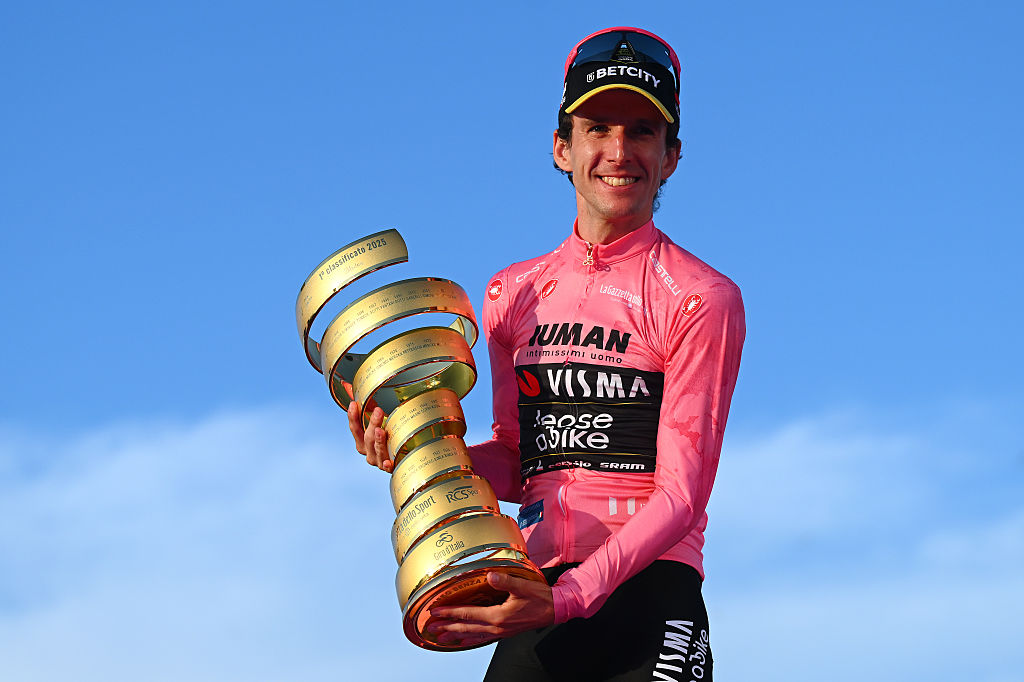O'Connor makes an impact at Giro d'Italia in debut Grand Tour
22-year-old Australian takes over as Dimension Data's top GC rider
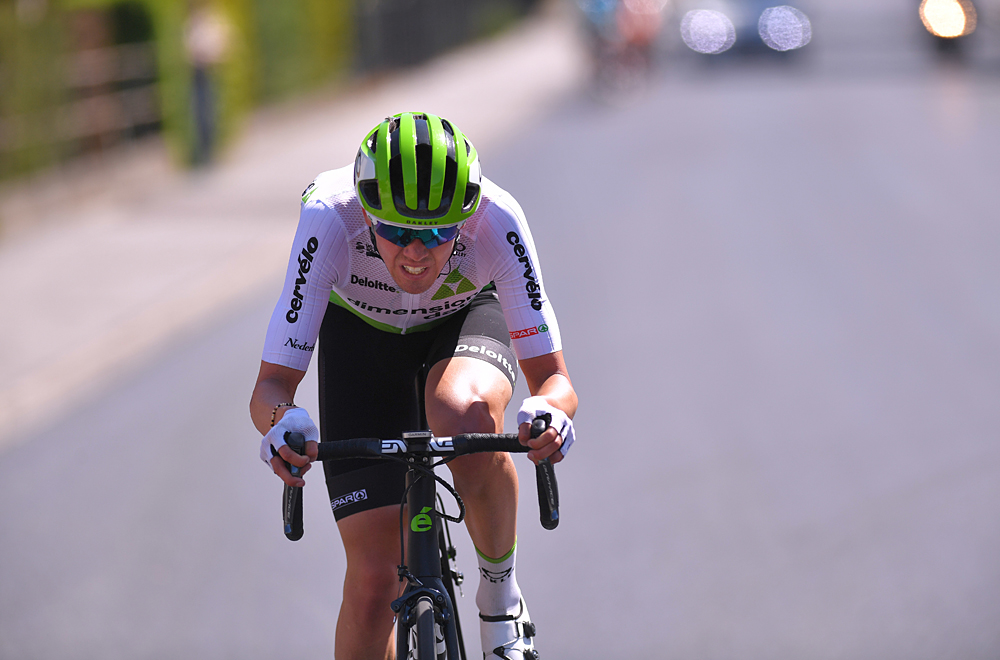
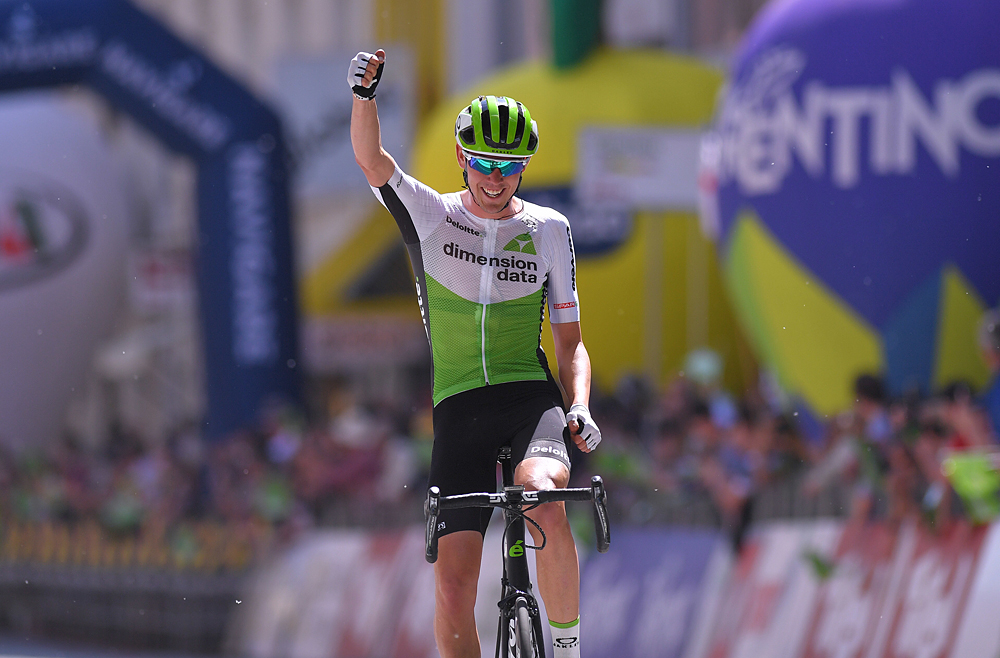
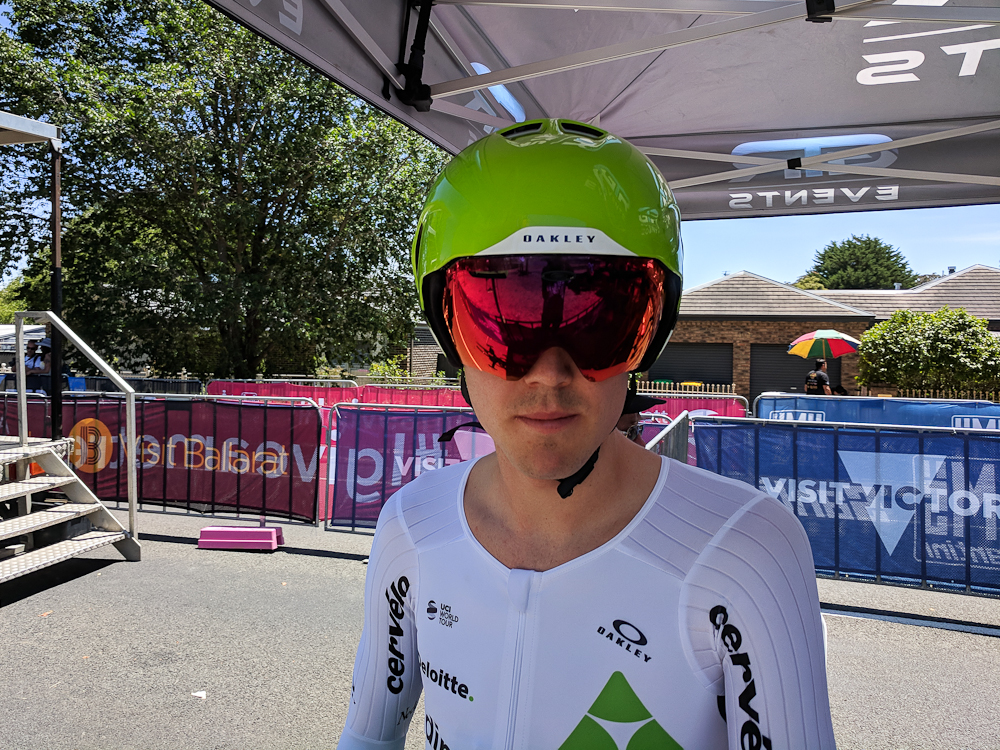
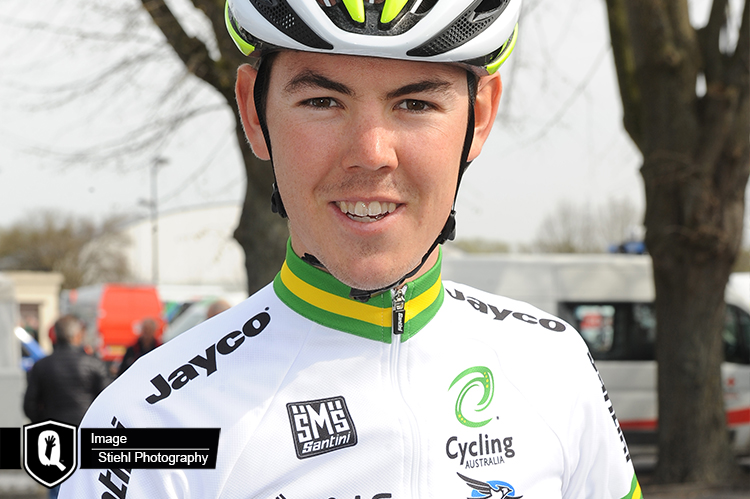
For now, Australia's Ben O'Connor (Dimension Data) can sum up his debut Grand Tour in this year's Giro d'Italia in one word: surreal.
Giro d'Italia: Sam Bennett wins stage 12 in Imola
Giro d'Italia 2018: Stage 12 highlights - Video
Simon Yates: There are no easy days here at the Giro d'Italia
Giro d'Italia: Rain, punishing finale put GC contenders on the defensive in Imola
Sam Bennett goes the distance to double up at Giro d'Italia
Giro d'Italia: Viviani keeps points jersey despite bad day in the rain
Currently, in 13th overall, the 22-year-old from Perth is having a dream start to his Grand Tour career, in another significant step up the professional cycling ladder for a rider only halfway through his second year at WorldTour level.
Although his opening time trial in Jerusalem was relatively unremarkable, with a 45th place on the day, since then O'Connor has placed 12th on stage 6 to Mount Etna and 11th on the ninth stage to Gran Sasso. And although he lost more than 36 seconds on stage 11 in Osimo, after getting blocked by the late crash and having to fight his way back on, all in all the 2018 Giro d'Italia is turning out to be a breakthrough for the young Australian.
"It's been incredible. I couldn't begin to think I'd be up there on the Gran Sasso stage with a kilometre to go with just 10 guys. It was an insane finish – one of those you only dream about," O'Connor told Cyclingnews on Wednesday. "I was dreaming about it last year, and to be up there like that in my first Grand Tour is surreal.
"I'm just taking it day-by-day, for sure. That's how I usually do things. I tend not to count down: six days to go, five days, whatever. I'm taking the opportunities when I can because I don't know how good I'll be in the third week. If I stay this good, maybe the top 10 on GC is possible, but then that's usually so far out of reach for someone doing their first Grand Tour. That'll be really difficult.
"I just hope that I can be there on the harder days and then try on the stages like Sapped [on stage 15], which has big mountains all day. Guys might look at each other, and I'd have a little breakthrough chance, maybe," O'Connor said.
As the new kid on the GC block, O'Connor recognises that it means that to a certain extent he is flying under the radar. "It certainly helps with those opportunistic chances, when you have good legs and can be there in the finale. You might not be the strongest guy, but if you're willing to risk it, then those chances can pay off. Maybe even this week."
The latest race content, interviews, features, reviews and expert buying guides, direct to your inbox!
Before the Giro d'Italia, O'Connor's standout result from the media's point of view in 2018 was the Tour of the Alps, where he took a solo stage win and finished seventh overall. But O'Connor says that the result this spring where he could begin to feel as if he was on the same playing field as the best WorldTour racers was the Volta a Catalunya in March, where he took 11th overall.
"It was definitely the first time in a WorldTour race where I'd felt like I was actually racing. A lot of the time in my neo-pro year in the WorldTour races, I've just been hanging on. In the Volta a Catalunya, I was chasing guys like Alejandro Valverde (Movistar), and that was hard to do. But that was definitely where it started, and then the Tour of the Alps was the next step up."
Avoiding the stresses of tricky finishes
O'Connor stepping up to the plate comes at a good time for Dimension Data, given that their original Giro GC contender, Louis Meintjes, is not having a great race by anyone's standards. Meintjes lost 3:30 on the Etna, and then disaster struck on stage 10 when the South African found himself in the Esteban Chaves group, which finished 25 minutes down.
Like Meintjes, O'Connor's strong point is climbing, rather than time trialling, which means the team can regroup around the Australian's GC bid relatively easily. Stage 16's race against the clock next week may be harder for him to handle. "For sure, I can time trial, and I know I can. I do a lot of local time trials. But I've never put together a good one in a proper race before.
"I don't know where I was in Jerusalem – 30th, 40th? [45th] – but it was certainly OK. I know I have the horsepower, but I don't know whether I'm overdoing the warm-ups or something. Maybe it's a mind thing, but I've done a few, and they haven't been very good.
"I definitely feel super-comfortable on the climbs so far in the Giro. If it's a one-off mountain, I don't have the power compared to some of the boys here; they have unbelievable numbers. But on a repeatability basis" – when there are multiple climbs on one stage – "I have a good chance."
If the Giro d'Italia is a voyage into the dark for O'Connor, so too is racing in Italy in general, given this is only his third event in the country at any level. He has been learning, O'Connor says, from talking to his Dimensino Data teammate and roommate Igor Anton – a more experienced racer, 13 years his senior, and a winner on the Zoncolan back in 2011.
"Strade Bianche [this March, finishing outside the time limit] was my first-ever race here. I didn't do any under-23 races in Italy. I only spent one year in that category and last year I didn't race here. So it is a bit of a leap forward, as you say. And it's a tricky business: like at one start in Sicily and in some of the tiny towns, the road surfaces can be very difficult. But if you've got good legs, then you're going to be OK."
What tackling the Giro boils down to, in O'Connor's opinion, is being realistic about your overall options and keeping a sense of perspective. "If you're not trying to win the Giro itself, then you don't have to risk absolutely everything. If you lose 10 seconds on a normal stage, it's not so much. Especially not when on stages like the one to the Zoncolan, or to Sappada, or Cervinia, the gaps are going to be minutes.
"So if you're not going to be winning, but are maybe aiming for the top 15 on GC, or something, then you don't have to get too stressed about the tricky finishes."
Indeed, for now, in O'Connor's case, things are going so well in the Giro that there is very little for him to get stressed about at all.
Alasdair Fotheringham has been reporting on cycling since 1991. He has covered every Tour de France since 1992 bar one, as well as numerous other bike races of all shapes and sizes, ranging from the Olympic Games in 2008 to the now sadly defunct Subida a Urkiola hill climb in Spain. As well as working for Cyclingnews, he has also written for The Independent, The Guardian, ProCycling, The Express and Reuters.

